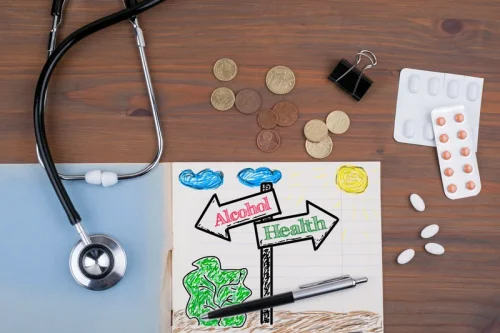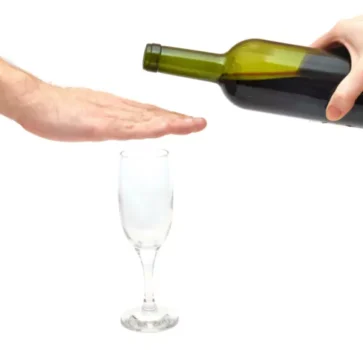
The member sitting next to them will come up with a positive replacement thought. Setting short- and long-term goals gives people in recovery something to work for, but they can sometimes struggle with determining what those goals should look like. Question balls are a resource that group leaders may use to get topics of conversation going. They write recovery-related questions on a ball for participants to toss around, with the person holding the ball answering the question. In order to keep participants engaged and focused, leaders may offer different activities during sessions.

Improve Patient Outcomes with Group Therapy
One way to tackle communication and inclusivity issues during group therapy is to conduct check-ins. When Lisa attended her first relapse prevention group meeting, she was nervous, but soon felt at ease. The outdoor hikes organized by the group allowed her to reconnect with nature and get some much-needed me-time https://ecosoberhouse.com/ and social support. A range of activities ensures that relapse prevention programs cater to the diverse needs and interests of the group’s participants. The goal should be to include a range of activities, such as educational workshops, creative expression, physical exercise, and social gatherings.
- You can read a passage and ask the members to take a silent moment to reflect on its insight.
- Many relapse prevention group activities focus on learning essential coping skills and communication techniques.
- It can also promote relaxation and build social connections, thus aiding in relapse prevention.
- Understanding the situations, emotions, and environments that can trigger cravings and relapse is crucial for sustained recovery.
- This worksheet on radical acceptance can be completed individually inside or outside of a group session.
Download 3 Free Positive Psychology Exercises (PDF)

They can share these stories with other group members, which helps reinforce the idea that the past is in the past and the future is an opportunity for new beginnings. The activities should reflect the goals substance abuse group activities and composition of group members as well as the theoretical approach used by the group leader or therapist. Members of the group will each get an index card with a topic on it (any random topic will do).
- Jessica Plonchak serves as Executive Clinical Director at ChoicePoint.
- “Because the hurt across our state is so great, we know there are even more organizations creating space for healing who can utilize this funding.”
- I realized it’s okay to be counselor and human; at times, humans say dumb stuff, hurt each other’s feelings, and don’t know the answer.
- This game has no winners or losers, and you may play with more than one balloon at a time.
- Thought identification and replacement is a cornerstone of CBT, which is an evidence-based treatment for both anxiety and depression (Wolgensinger, 2015).
Ending activities for your termination session
Group therapy is a common approach used in the treatment of substance use disorders. With a plethora of research supporting its effectiveness, Counselors can effectively use this form of treatment within an addiction treatment program to support their clients. If you or a loved one is interested in group activities for adults in recovery, we can help guide you!

Best Group Activities for Anxiety and Depression

As clients do this individually, they can share the effects of the problem with group members, which offers support and validation. It’s important to have moments of levity during addiction recovery to help build camaraderie and enthusiasm, and playing charades can provide some. Sound therapy may be most beneficial when offered by a trained practitioner, but music, instruments, or nature sounds may also be incorporated informally into group and peer sessions. In meditation sessions, participants will practice focusing on their breathing or on affirmations while allowing thoughts to come and go without engagement or judgment. Learning to be present and mindful is a vital part of the recovery process.
A New Perspective on Relapse
Research indicates that individuals who engage in treatment and remain committed to recovery often experience positive outcomes. These outcomes include significantly reduced drug and alcohol misuse, decreased criminal activity, and improved overall social and psychological well-being. Group therapy sessions focusing on relapse prevention equip individuals with the skills and mindset needed to overcome setbacks. Whether it’s 12-step meetings, SMART Recovery, or group therapy, these services are a crucial part of drug and alcohol treatment programs and aftercare support. People opting for group therapy and support groups are often looking for peers to offer guidance and support in their recovery journey. Lock and key activities can be fun to break the ice and allow peers to connect and share their experiences.

How to Perform Group Activities in Therapy
- CARF International accreditation demonstrates a program’s quality, transparency, and commitment to the satisfaction of the persons served.
- With 17 years of relevant experience, she has helped several clients in their journey to recovery from addiction.
- Substance abuse treatment is a complex and multifaceted journey, and one of the most effective tools in this process is group therapy.
- You can play the music in the background to help clients reflect while listening to music.
- The activity inspires hope, support, and a feeling of companionship that comes with sharing, all of which are essential for overcoming the challenges of substance abuse disorders.
